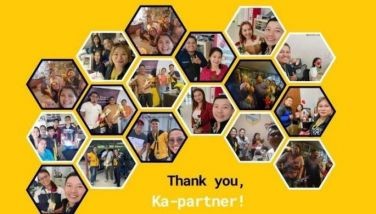Bar topnotchers vow to serve the needy
CEBU, Philippines — The law graduates of the University of San Carlos (USC) who successfully made it to the Top 10 of the 2018 Bar examinations are looking at rendering more free legal services and help those in need, once they start practicing the profession as a way of giving back to the community.
In 2017, the Supreme Court issued Administrative Matter No. 17-03-09-SC or the Community Legal Aid Service Rule which states that lawyers are required to render 120 hours of pro bono legal aid services to qualified parties within the first twelve months from admission to the Bar.
This is counted from the time they signed the Roll of Attorneys. This is in line with the guarantee of access to adequate legal assistance under the 1987 Constitution.
For second placer Marcley Augustus Natu-el, it should have been a given already that lawyers should render pro bono services.
Exposed to the life of inmates during his law school internship, Natu-el saw the need of free legal aid services rendered to detainees, so they would have a day in court.
He said the wheels of justice can roll more efficiently if the accessibility of the justice system for the needy and marginalized will be enhanced through lesser expenses and fees.
“If we can’t change everything right now, the immediate solution would be to require more pro bono work because, after all, we’re supposedly not in this profession for money but to help as officers of the court and administrators of justice,” he said during #TheFreemanConversations with the topnotchers yesterday.
Mark Lawrence Badayos, who ranked third in the recent Bar examinations, said aspiring and new lawyers possess a strong sense of social justice and want to practice law to help the community.
“The reason why we want to become a lawyer is to help our community in ways that we know how. And it is appropriate to pay it back,” he said.
During his internship, Badayos worked as a court decongestion officer at the Mandaue City Regional Trial Court wherein he and his colleagues introduced a form to be accomplished by lawyers to ease the traffic of the cases per day.
He is hoping it will be replicated in the other courts to hasten the disposal of cases and to serve “true justice.”
Ninth placer Jebb Lynus Cane said the legal procedures should favor the less fortunate, instead of those who extort money. He plans to pursue his advocacies for human rights, environment, and sports. He is a swimmer since elementary.
With the recent killings of lawyers in the country, the USC topnotchers prefer to uphold the rule of law rather than be threatened by those with evil intent.
Eyeing to be a litigation lawyer, Badayos said there is no reason to be afraid as long as they follow the rule of law and the dictates of conscience. He also said lawyers should step up and bond together as a community.
“It is in the numbers and solidarity of lawyers that we gain strength,” he said.
Cane said handling these threats that usually come with the law profession depends on how a lawyer chooses his clients.
Natu-el, on the other hand, shared the threats to the security of lawyers made his mother fear for his future and even advised him not to take up controversial cases. But for him, the recent killings were isolated cases.
“Our dreams cannot be stopped by that fear. I think our desire to help the people and uphold the rule of law is stronger than any evil,” he said.
Meanwhile, USC Law Dean Joan Largo said they will continue to suggest reforms before the Supreme Court such as the regionalization of the Bar exam.
“It is always the case that those who topped and passed the bar examinations come from places outside Metro Manila. We will continue to be better plus it is high time to emphasize that Cebu really is the most conducive place to study, be it law or other programs. There really is no better place than Cebu,” she said.
She added they will also propose to have the Bar exam computerized.
“Nobody files pleadings in court in their own handwriting. It is always typewritten. And yet, handwriting is a very crucial factor in passing and topping the bar examinations. We wanted that changed. We wanted to democratize the Bar,” she said.
If it cannot be helped, Largo said they want to address the issue of appreciation of answers by the examiners by having a panel of readers who will evaluate the answers uniformly. — GAN (FREEMAN)
- Latest





















